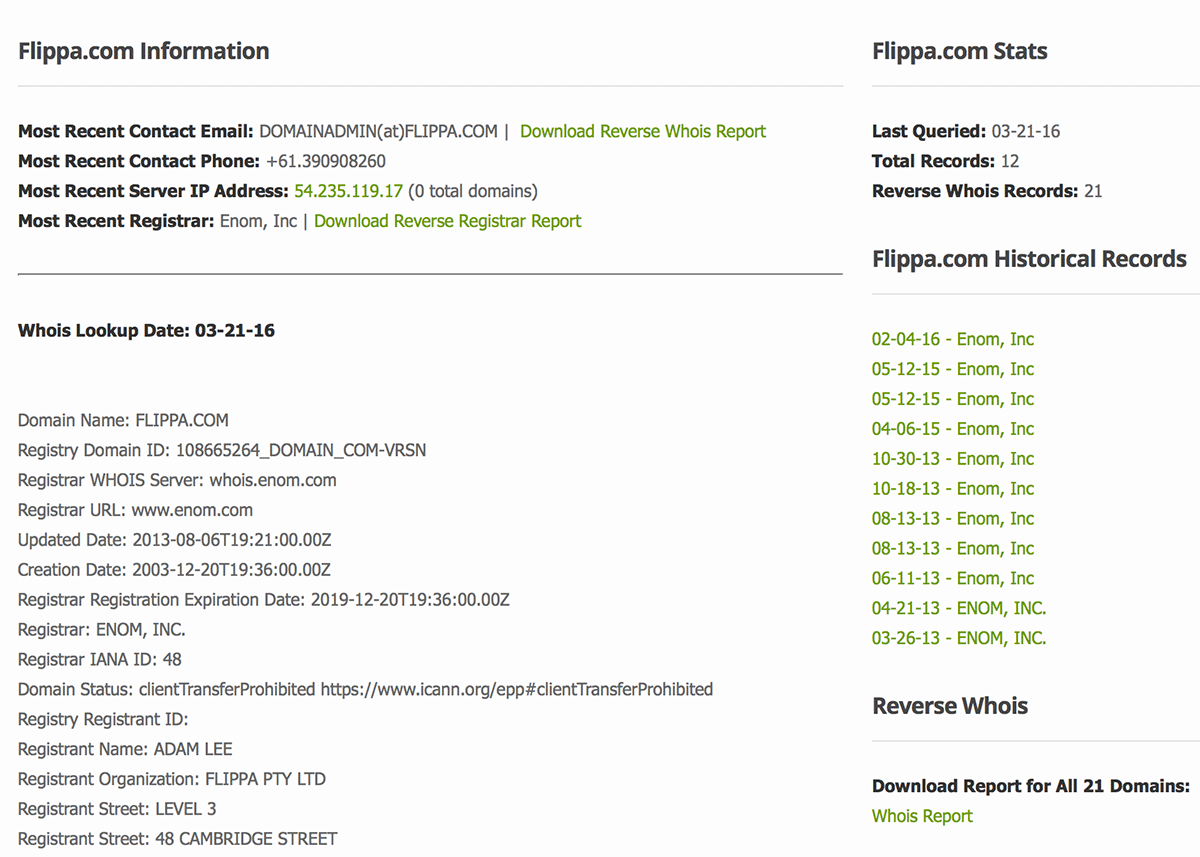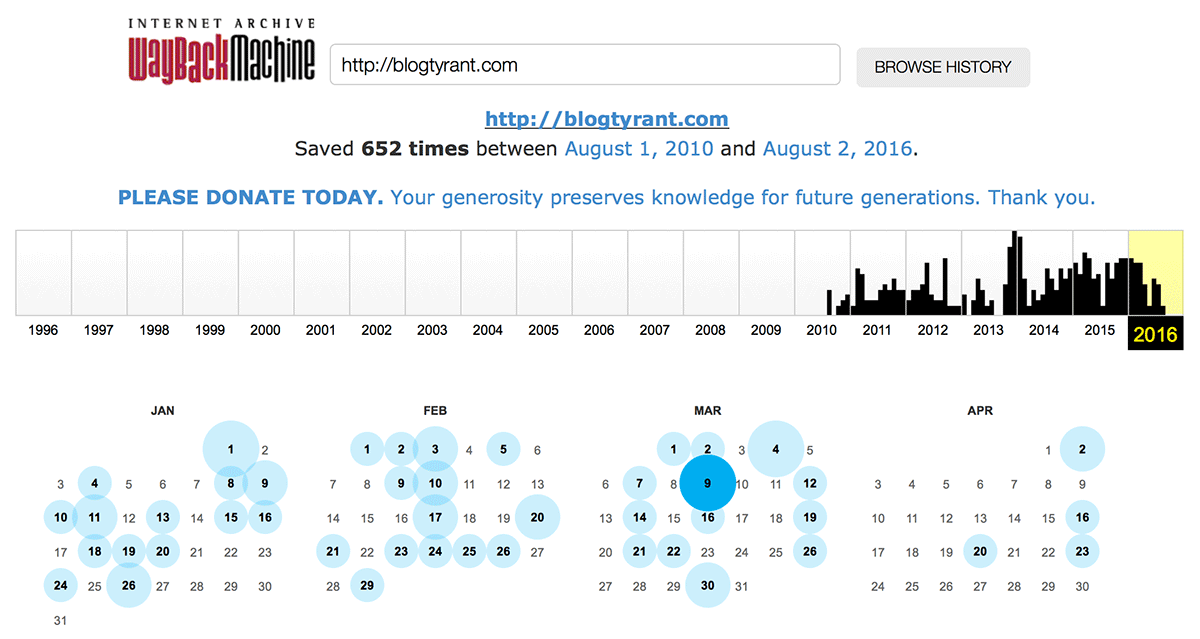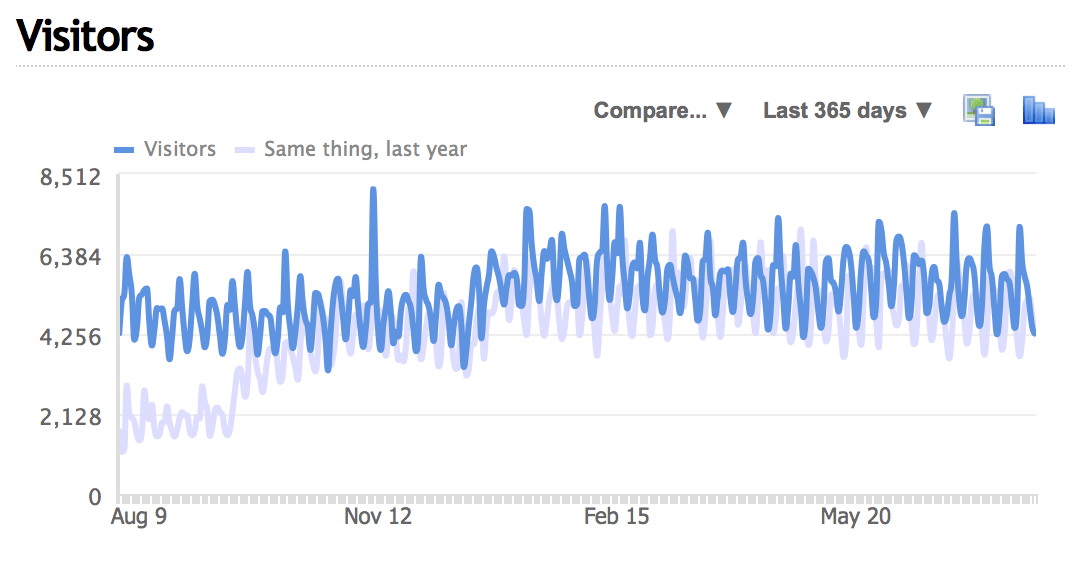
Before you think about starting a new blog you might want to consider buying one that is already profitable. Buying websites is now serious business and, if you know what you’re doing, it can be a really smart financial decision.
One of my first flukes in the online world was selling a fitness blog that I had only been working on for a few months. It was a great learning experience and taught me a lot about doing business online.
In today’s post I’m going to go over some really important things that you need to know before you think about buying an existing website. Knowing these things could save you thousands of dollars and countless hours (and maybe help you avoid a scam or two…).
Let’s take a deeper look.
A quick warning about buying a website
Buying a website can cost serious money and comes with a lot of potential risks for the inexperienced buyer. Here’s a recent Tweet of mine proving that it’s big business – this is for the domain name alone!
Got $50,000? Pretty good domain name! https://t.co/klLduwlxmu is for sale on @flippa https://t.co/yVATPtbIfw
— Ramsay (@BlogTyrant) July 27, 2016
Note: That domain name sold for $40k… and not to me.
This post isn’t meant to be advice but rather a starting point for your further research. Always consult your accountant and relevant business professionals before making these types of financial decisions and ensure you know what you’re in for.
Most of all, don’t rush the process. Take your time doing the due diligence and get information from a variety of trusted sources. You might want to “start at the top” – but you still have to ensure it’s a good decision.
Where do I buy a website?
Once you’ve done your due diligence (that section is below) you essentially have two options on where to buy a website:
- Use a website like Flippa
Websites like Flippa are specifically designed to auction or sell domain names and existing websites. These are a good option because the community often weighs in on any “issues” and certain statistics are required when you create a listing. - Purchase one privately
This is when you essentially approach a website that you think has potential and ask whether they are willing to sell. You’d then go through a discovery process where you find out all the details and numbers and make an offer.
Of course there are other methods but these are the two main ways that I have seen the most often. I’ll go into details about threats and opportunities below.
Should I really buy an established website?
When you’re thinking about buying an established website you want to make sure you have some plans. You’ll want to tick off at least one or two of these:
- Does the website generate revenue?
The first reason people buy websites is because they want to make money or add to an existing stream. If a website is already generating proven revenue that is a good sign, and you can often find something that is earning well but could be doing better. Something I see pretty regularly on Flippa, for example, is people who have built up a successful blog but no longer have the drive or time to maintain it. They might have an offline job taking up their time, or they might have just lost the passion for it. These can be good opportunities, in my experience. We’ll get into what you need to look for specifically down below. - Is the website in a niche that you know about?
There is no point in buying a blog in a niche that you don’t understand. It can cause a lot of stress and you genuinely won’t enjoy the process. Of course, there are some exceptions. For example, you might have enough experience with online business that you could purchase the website and then hire someone to manage it. Or you could manage it yourself an just hire writers to produce the content. When it comes to the niche, however, it’s best if you know how it works and how it makes money. Running a website is so much more than just producing content. - Is the website a competitor?
If you already have a website it might be the case that you want to purchase something that is competing with you. This is a pretty common business practice. We see it all the time with larger companies (like Facebook buying instragram and 58 other things) but it can also work on a smaller level. You would need to make sure that the competitor was large enough to pose a significant threat, and that your own revenue levels were good enough to justify such a decision. - Could the website become a sister site to your existing website?
Sometimes purchasing a website can be a good idea if it adds to your existing plan. For example, if you’ve got a blog about gardening then purchasing a website that reviews gardening gloves or tools could be a really nice addition. Again, this comes back to having a solid blogging strategy and is not something you really take on lightly. Cross promoting websites and blogs can be good if the branding is tight, otherwise it can cause some confusion. - Is there some SEO value in buying the website?
Another main reason people buy websites is because it can be a way to acquire new links. This is a somewhat dubious area of SEO practice and is not always legitimate. The idea is that you look for a website with excellent SEO value so that you can either step in to some good organic rankings that they’ve earned, or else use the new site to link back to your current site. Looking at the rankings is important – even if they’re not making money you might find that they rank for some quality keywords that you might be able to turn into a profit with your specific knowledge. - Do they have an exciting mailing list?
Another reason people purchase websites is to acquire the website’s mailing list. As we’ve looked at before, your mailing list is where you end up making the most money. It is also a good protection from Google’s algorithm changes. However, it’s not that easy to grow one and can take a long time. If you have reason to believe that a particular site has a large and active mailing list then it can be useful to purchase that as part of the site, even if the site itself isn’t particularly exciting.
These are the main things people will look for when trying to buy an established website. As mentioned, it’s vital to know why you want to do this before you get into the investigation process. You’ll want to have a very deliberate strategy.
Some vital things to know before you buy a website
Okay, now we can get into the juicy stuff!
Before you buy a website you need to do a lot of research.
And I mean a lot.
This is especially true if you are investing a significant amount of money into the purchase. But, even if it’s only a $1000 website, there’s no point rushing into it and wasting that $1000 that could have otherwise been used on other marketing or content creation.
This is not an exhaustive list by any means, but here are some of the main things you need to consider before you buy.
1. Make sure you know who owns it
There have been stories in the past of people gaining control of a website through dark wizard means and then selling while they have control. The result is that the new owner doesn’t really own the new site and the money they paid is likely lost.
Use whois tools like Domain History to look at the ownership history and whether there have been any strange changes in the past. Most of these tools offer an archive of changes and alterations so sometimes something funny will stick out.

Here’s a quick search I did of Flippa’s domain and you can see all the details are available as well as an archive of major changes on the right. Very handy when looking to become the new owner of a domain.
2. Use the Wayback Machine to see it’s history
One thing you don’t really want is to purchase a family-friendly site only to discover that two months ago it was actually and adult site or some awful spam thing. Tools like the Wayback Machine can let you see snapshots from a website’s past. Have a snoop around and make sure it has always been the one thing and never used as a link farm or similar.

Embarrassingly, there’s six years worth of archives for Blog Tyrant going back to the first ever ugly-ass design that we launched! Another good reason to be careful what you put on your website.

Oh, and shout out to the decade-old ProBlogger site. I love you Darren! Couldn’t help myself on this one. This is the site that got me started.
3. Look at some SEO/traffic signals
Before you get too attached to a potential purchase you want to make sure the SEO side of things is looking good. Do a good manual search of Google yourself and then go deeper.

For example, you can use a site like SEMRush to look at the back links and other SEO details that may be missing. These aren’t always spot on accurate, however, so enter your site first and have a comparison.
Again, it’s not supposed to be a foolproof method but rather a way to just gain some more information on your potential acquisition.
Here you want to look for some obvious red flags. For example, if the site is ranking on the front page of Google for a good keyword but only has two back links then something fishy is going on. They might be faked, somehow, or you at least run the risk of losing your rankings should those links vanish.
4. Carefully examine the stats provided
When someone posts a listing on Flippa or you begin negotiating in private you will always have a lot of stats to look at.
Now, normally they will provide screenshots of all the vital things like traffic numbers, bounce rate, page views, content, etc. but I encourage you to ask for logins to their stats accounts to be sure. This is pretty easy – they just have to add your email to Google Analytics and allow you to view-only. It’s no threat to them.
What you want to do now is start comparing the main numbers to previous periods and see if there are any noticeable trends. For example, you might find a massive traffic spike from six months ago and then a huge drop off. This is a red flag for me because it could mean there was some big advertising spend or lucky back link and that may be responsible for a large chunk of their recent revenue.

Here’s one screen shot I took from one of my accounts. What information would you take away from this?
You also want to see if there are any individual posts/pages that are causing the majority of traffic. Again, this represents a risk because the traffic might suddenly drop off or not be all that relevant to your monetiztion strategy.
5. Details of revenue and expenses
One of the most important things you need to look at is the revenue and expenses reports.
Sometimes these will be quite detailed and complex, other times they will be quite simple. Again, there is no harm in asking your accountant or business advisor to take a look at the numbers to make sure you haven’t missed anything.
The main things you want to figure out are:
- Where does it earn its revenue?
Where does the money come from and are you happy with the levels? - How consistent and stable is it?
Does the money come in consistently and is it likely to keep continuing over the next months and years? - Is it diversified?
Make sure to take a look at whether or not the revenue is diverse. For example, if it’s only from one source is that a risk to continuity? - Is it real?
The hardest part to determine is whether or not the revenue details are real. It’s pretty easy to fake images and reports in Photoshop so see if you can get a variety of sources/reports and even ask if you can confirm the details with your own login again. - Is the profit stable?
Revenue is fine but if you’re making $20,000 a month but your advertising budget is $19,000 then that’s a big risk and represents a lot of work and advertising expertise. Make sure you know where it’s all coming from. The flip side of that is that if you think you can do these things better you could improve profits.
Although earnings are not everything when it comes to a website, they are important. It’s a big risk to buy a site that is making zero dollars and turn it into something profitable. For beginners it’s always good to look at something relatively established.
The actual buying process
Once you’ve done your research, sought advice, talked to the owner, etc. you might finally decide that you want to purchase a website. At that point, you’ll need to cover a few based:
- Make sure you have as many details as possible
Ensure that the seller is willing to give you details like name, phone number (call them!), address, business numbers, tax numbers, etc. and then run those details against any government databases that may be available in your country. You want to be 100% sure that this person owns the website contents and domain name and have the authority to sell it. - Know exactly what you’re buying
Make sure you know exactly what you’re buying. Is it the domain name alone or is it the entire website inclusive of the contents, servers, databases, images, mailing list, etc. Be very specific. - Consider getting a contract made
Contracts are messy, expensive and sometimes not even that useful (international stuff is hard). That being said, a contract can be useful for outlining a sale process, as well as resolving any issues quickly should some problem arise in the future. Please don’t use stuff taken off the web – talk to an IP lawyer in your city. - Add a non-compete clause
If you’re buying a website from someone it’s good to remember that they have a lot of expertise and connections in the industry. The last thing you want is to spend big on a website and then they go off and make a new one and take your market. - Ask for a period of support
If the original website owner is willing to stay on board for a few months to help you get the hang of the website or even keep producing content until you know how to run it then you’re onto a winner. That can be a hugely valuable teaching moment for you and your business. - Use Escrow.com or similar
Using a site like Escrow allows you to have protections in place for the buyer and seller. For example, they won’t release the domain name under the funds have cleared, and visa versa. They act as an intermediary for both parties, and don’t allow the transaction to be finalized until both parties are happy. - Purchase in stages
It is often wise to do the buy in stages. For example, they might send you the databases and give you access to the hosting before you send the money. Once the money is cleared in their account (or Escrow) then they give you access to the domain name or sign it over. The domain name is really the final clearance for a purchase – until you have ownership and control over that you haven’t bought anything. - Know how to get your money back
The last thing I wanted to mention is that sites like Escrow and Paypal often allow you to get your money back should something go wrong or if you are defrauded by someone. Before you start any purchase online (be it a website, car, business, etc.) you should research and find out how that works for each service and in each country.
By now I’ve probably scared most people out of the whole idea! While that wasn’t my intention, I do just want to make sure you are aware of some of the risks that your research and transaction can be as smooth as possible.
Should we buy a website together here on Blog Tyrant?
So, I had the bright idea that we could buy a website here on Blog Tyrant as a learning exercise. We could do it together, as a community!
For example, I could pick a budget and set some criteria and then we could choose a site from Flippa over the next few weeks. I’d purchase it and then document the process and any improvements that are made. It could be a very fun way to learn about building a website.
Leave a comment below if you’d be interested in seeing this happen.
Revealed: How to Buy a Website and Start at the Top originally posted at Blog Tyrant
No comments:
Post a Comment